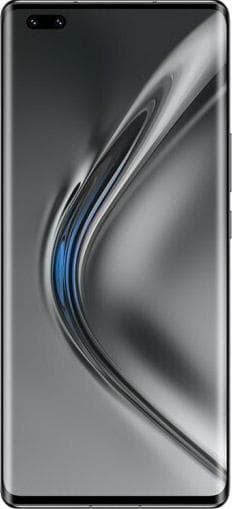- Archive
- Honor V40 review

Honor V40 review

The Honor Honor V40 ranks as the #353 phones globally, achieving a LibraScore of 60. Across all metrics, this product stands out most for its #263-ranked display among 800 phones. Consider the Honor 70 or Honor X9a, which offer higher scores while staying in the same price range.
Build Quality and Design
Crafted with a sleek aluminum alloy frame and a glass back, the Honor V40 exudes premium craftsmanship. Its 8.0 mm slim profile and 186 g weight ensure a balanced, ergonomic feel, while the 2.5D curved glass and dual-edge display elevate its modern aesthetic. The 91% usable surface and TÜV Rheinland-certified screen prioritize comfort and eye-friendly viewing. Available in Black, Rose Gold, and Pearl White, the device combines elegance with durability, reinforced by Corning Gorilla Glass. Advanced cooling and dual linear motors enhance usability, blending functionality with a refined, tactile experience. Take a look at Honor Magic5 - its improved design sets a new standard.
Battery Life
The Honor V40’s 4000 mAh Li-Polymer battery ensures all-day endurance, supported by 66W ultra-fast wired charging and 55W wireless fast charging for rapid replenishment. Reverse charging enables 5W power sharing to accessories, while non-removable design ensures durability. Advanced cooling technology maintains optimal performance during intensive tasks, preventing overheating. Whether streaming, gaming, or multitasking, the battery efficiently balances power delivery with thermal management. Wireless charging and reverse capabilities add convenience, making it ideal for users seeking reliability without frequent recharging. The battery’s robust capacity and intelligent efficiency cater to demanding usage patterns, ensuring uninterrupted productivity and entertainment. If you're after top-notch battery, consider Honor 50.
Display
The Honor V40’s 6.7" OLED display delivers vibrant visuals with a 120 Hz refresh rate and 300 Hz touch sampling, ensuring fluid scrolling and responsive interactions. Its 439 PPI resolution (FHD+) and 10-bit color depth produce sharp, lifelike imagery enhanced by HDR and DCI-P3 color gamut. The 2.5D curved glass and dual-edge design create an immersive, frameless aesthetic, while TÜV Rheinland Eye Comfort Certification reduces strain during extended use. With peak brightness up to 800 cd/m², the screen remains visible in sunlight, and Corning Gorilla Glass adds scratch resistance. The hole-punch notch and 91% usable surface maximize screen real estate, blending modern elegance with practicality. Whether gaming, streaming, or multitasking, the display’s high performance and adaptive brightness ensure a premium visual experience. It’s worth checking out Honor 60 Pro, delivering remarkable display.
Camera
The Honor V40 features a versatile triple-camera system, anchored by a 50MP standard lens with Sony IMX766 sensor and f/1.9 aperture for sharp, well-lit photos. The 8MP wide-angle and 2MP macro lenses expand creative possibilities, while 4K video, night mode, and laser autofocus ensure adaptability in diverse conditions. The front 16MP camera delivers clear selfies, supported by ultra-wide and time-lapse capabilities. However, raw image quality may require post-processing for optimal results, as noted in user feedback. Advanced features like digital zoom, HDR, and dual LED flash enhance usability, though optical stabilization is absent. The camera’s performance balances technical innovation with practical limitations, offering a capable yet imperfect solution for photography enthusiasts. Give Honor X8 a try—it’s designed to provide an unparalleled camera.
Price and Value
The Honor V40 offers premium features at a competitive price, combining a stunning OLED display, fast 66W charging, and a refined aluminum-glass design. While camera performance may require post-processing, its robust battery, smooth 120Hz screen, and advanced cooling justify its value. Ideal for users seeking a feature-rich, stylish device without compromising on core performance or modern connectivity.
Performance
The Honor V40’s 7 nm MediaTek Dimensity 1000+ processor, paired with 8 GB RAM and UFS 2.1 storage, ensures smooth multitasking and rapid app launches. The Mali-G77 MC9 GPU handles graphically demanding tasks efficiently, while advanced cooling prevents overheating during extended use. With an Antutu score of 541,437, it outperforms most mid-tier devices, delivering responsive performance for streaming, gaming, and productivity. Though lacking dedicated gaming enhancements, its balanced power and thermal management make it a reliable choice for daily tasks, offering a seamless blend of speed and efficiency without compromising stability. Consider discovering the power of ZTE Libero Flip, featuring the latest advancements in performance.
Pros
1. Premium aluminum and glass build with a slim, ergonomic design
2. Long battery life with ultra-fast wired and wireless charging
3. Vibrant 120Hz OLED display with HDR and TÜV-certified eye comfort
4. Advanced cooling system ensures stable performance during heavy use
5. Competitive pricing for a feature-rich, modern flagship experience
Cons
1. Camera performance may require post-processing for optimal results
2. Lacks optical image stabilization for sharper low-light photography
3. No headphone jack for wired audio connectivity
4. Non-expandable storage (no SD card slot)
5. Battery can generate heat during prolonged intensive tasks
FAQ
Compare with other phones
See how this item stacks up against any other model
Choose two different items to see a detailed comparison of their specifications, performance, and features









